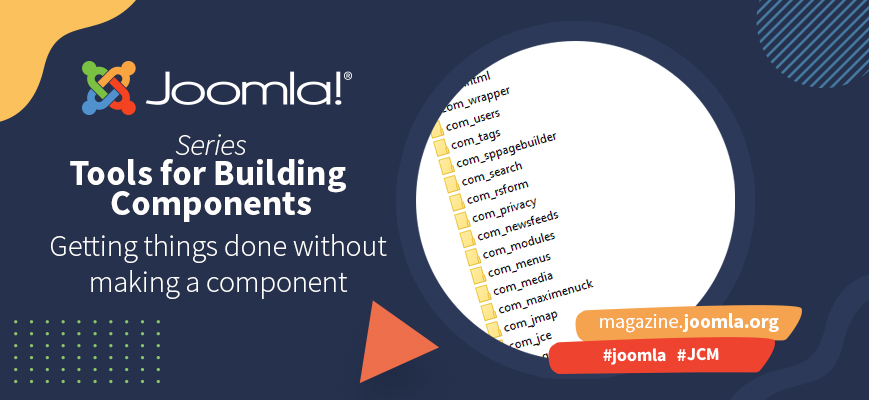A series of articles about tools that can help you to create a Joomla component. But we start with showing that a lot can be done with core Joomla, without building a custom component.
Empowering administrators with insights beyond just updates
We've all been there. You log into your Joomla administrator panel, check for updates, see that green checkmark, and think "Great! My site is healthy." But is it really?
Wouldn’t it be great if Joomla could automatically generate meaningful SEO data, so you don’t have to do it manually? Mohd Shahzan, one of the two very first students to join the Joomla Academy, is working on this. Let’s find out what this project means for you as a Joomla user, administrator or developer!
In the previous 8 episodes we looked at tools to build a Joomla component. In this last episode we’ll look back at the previous series and wrap it up.
When people think of Joomla, they often think about the Joomla CMS, which is a great system for building websites. But Joomla is more than only the CMS. Under the hood, there is something else: the Joomla Framework.
I was given code snippets in css, html and php with the aim of achieving the same output. How we go about this depends on the execution and who the functionality is aimed at. My own implementations tend to be less geared towards customer-friendly code if I’m using it on my own website but I wanted to consider which could be used by customers who update their own sites.
Joomla! is proud to announce that it has been selected as a mentoring organization for the Google Summer of Code™ (GSoC) 2025 program. This year brings exciting changes, including expanded eligibility beyond college students, allowing a wider range of contributors to participate and make an impact.
You probably know about automation tools like make.com, Zapier and IFTTT: no-code tools used to connect different systems. But did you know you can do that with Joomla’s Scheduled Tasks as the beating heart? Mohamed Abdelaziz shares with us how he built a Joomla Based Automation System.
In Sustainable Web Development with Joomla! - Part 1, we explored how Joomla enables sustainable web development by promoting energy efficiency, resource optimization, and eco-friendly practices. Key steps included selecting green hosting solutions, writing clean code, minimizing JavaScript, optimizing fonts, and leveraging Joomla's built-in functionality to reduce server load. Emphasis was also placed on user-friendly, accessible design to enhance performance and inclusivity.
By accepting you will be accessing a service provided by a third-party external to https://magazine.joomla.org/
 Community Magazine
Community Magazine 








